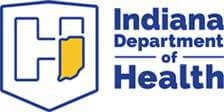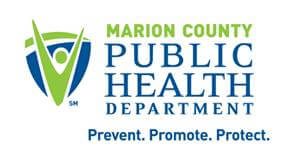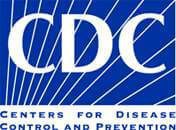Learn more about HIV, including who’s at risk, where to get tested, and how you can prevent it.

Background
In February 2019, the federal government announced the Ending the HIV Epidemic (EHE) in America Initiative. The initiative leverages data, tools, and resources to reduce new HIV infections by 90-percent over the next 10 years. Marion County is one of the jurisdictions to receive EHE funding from HRSA. In addition, Marion County will receive funds through the State of Indiana. Funding awarded to the IDOH gave the county nearly one year to plan its response.
Dr. Kristina Box, Health Commissioner of the Indiana Department of Health, and Dr. Virginia A. Caine, Director and Chief Medical Officer of the Marion County Public Health Department, both made this one of their top priorities and spearheaded the Marion County response with technical assistance from Angela White, Senior Consultant and CEO of Johnson, Grossnickle & Associates (JGA), and Jason Grisell, President and CEO of The Health Foundation of Greater Indianapolis.

Vision
We believe that Marion County and Indiana can become
a place where new HIV transmissions and cases of AIDS
are rare, people living with HIV have treatment and
services to support health and prevention, and few
people are vulnerable or exposed to the virus.
Every person has potential to achieve better health.
With sufficient information, services, support and structural change, every person has the ability to address the leading preventable health issues and epidemics in Marion County and Indiana.
Communities are Marion County’s most important source of
innovation and effective health promotion.
This plan actively encourages the involvement of all community organizations, including faith-based groups, local businesses, community centers, schools and universities, and a range of charities.
Health services and supportive services can always be improved.
This plan aims for improvements in service design and delivery and recognizes the value of integrating HIV services with other health and supportive services to meet people’s needs in efficient and effective ways.
Diversity is a strength.
Here in the crossroads of America, Indianapolis and Indiana have always benefitted from the diversity of people – individuals of all ages, traditions, backgrounds, and circumstances – who have come here to live and work. We cannot be isolated from each other, especially in combatting an epidemic. We gain capacity, skills and insights by working together across diverse perspectives and open communication and debate.
Stigma has no place in an epidemic response.
Efforts to end the HIV epidemic should be informed by evidence, including scientific evidence and community-generated evidence, and should confront and reject stereotypes, stigma, discrimination and criminalization that impede effective programming. This plan defines strategies and actions that follow best evidence without prejudice about illness or disability, sexuality and sexual expression, gender and gender expression, addiction and drug use, mental health, poverty, social and economic class, neighborhood and region, age, accent and language, and racial, ethnic or national background.
Ending the HIV epidemic requires a collective effort.
The HIV epidemic, now approaching its fifth decade, has been allowed to persist for too long. The many organizations and leaders involved in the Marion County EHE Task Force and described in this EHE Plan have the ability and responsibility to act, together and now.










